Cleopatra. Queen Elizabeth. Jane Austen. Sojourner Truth. Malala Yousafzai. The names of great women resound throughout history. Standing shoulder to shoulder with those legends have been countless women who excel in their personal and professional lives. In March, as we celebrate Women’s History Month, we would like to honor some of the women who help teach ensuing generations of strivers who are hoping to learn, change careers, and, yes, achieve greatness.
Our instructors are the backbone of the living pedagogical body of UC Berkeley Extension, and here are just a few of the talented women who contribute their career and teaching expertise to our courses and programs.
Nidhi Ahuja
Nidhi Ahuja, Ph.D., has a bachelor's degree in biochemistry, a master's in biotechnology and a doctorate in biotechnology. Her research interests lie at the interface of invading pathogenic bacteria and the susceptible human hosts. After completing her postdoctorate in microbiology and immunology at UCSF, Dr. Ahuja dedicated herself to sharing what she had learned with others.
“I quickly realized that teaching is an extremely fulfilling and satisfying experience for me,” she enthuses. “In every class that I teach, I have the opportunity to share my knowledge, my excitement and my love for biology with others, and I am deeply grateful for the opportunities I get to contribute to my students’ lives in a positive and meaningful way.”
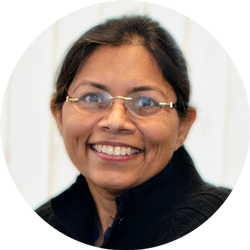
Who Inspires Nidhi:
“Our leadership here at UC Berkeley Extension, the directors with whom I have worked, current as well as in the past, these incredible women have been my mentors and their support and encouragement has been priceless!”
Since 2009, she has been teaching various disciplines of biology—both in the classroom and online at UC Berkeley Extension. She has taught Cell Biology, Molecular Cell Biology, General Biology I, Physiology, Biochemistry and Medical Microbiology courses.
“My teaching philosophy has been developed, critically reexamined and refined on the basis of my experiences,” she reflects. ”As a biology teacher, the challenge I face is how to stimulate curiosity and engage students in the learning process. I try to approach lectures as a guided conversation between myself and the students where their participation is the key to the learning process.”
Dr. Ahuja has been an extraordinary resource for Extension and her students, but it’s clear that the advantages accrue in all directions. “At the end of it all,” she states, “getting an enthusiastic response from my students and watching them succeed makes teaching an extremely gratifying experience for me. That’s what drives me to do my best every time I walk into a classroom!”
Marianna Lenoci
Marianna Lenoci, M.A., Extension Honored Instructor, has worked in the clinical research industry for over 20 years. She started in academia conducting research trials at the San Francisco Veterans Affairs Medical Center. She then joined Gilead, a biopharmaceutical company where she has managed global clinical trials in clinical operations, has provided Good Clinical Practice consultation and supported inspections in quality and compliance and is now a director in the Clinical Operations Center of Excellence department focusing on process improvement and quality.
Marianna first looked at UC Berkeley Extension thinking she might take some courses. It wasn’t long before she realized that with her experience and knowledge, she might be better suited to teaching courses! Now, more than 15 years into teaching in the Certificate Program in Clinical Research Conduct and Management, she reflects on its benefit to her profession.
“For a long time, nothing like this program existed for those of us who have been in the industry. We really needed to teach ourselves and learn on the job. Being able to offer that learning opportunity for students who want this career is what keeps me motivated and interested.”
It’s no surprise that the clinical research profession is heavily regulated. There are slews of laws and regulations that need to be followed. These regulations are often referred to as Good Clinical Practice.
“There are some people who treat these regulations and guidances like a checklist,” Marianna admits, “and they don't truly understand why they're doing what they're doing. And the difference with this certification program is that we're teaching the students why those regulations exist, and why we're doing it.”
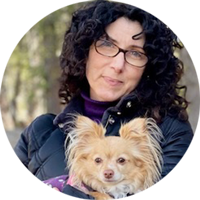
Who inspires Marianna:
“The students definitely inspire me. A lot of them are looking for their next career, and carving out a new career path for yourself can be very exciting as well as intimidating. The students have this wonderful combination of ambition and bravery.
“My other source of inspiration are people in the clinical research industry who are innovating and trying out new things to make a change with purpose.”
Marianna certainly has the expertise to share with her students to add the why along with the what and how. “I've worked at different facets of the industry,” she shares, “over 10 years ago I was at the veterans hospital conducting trials. I was supporting the investigators. Then I bridged over and started working for a sponsor, a pharmaceutical company, which is a very different facet of the industry. Then I slowly moved into a different department doing quality and compliance work. At almost every facet of my career, I've been able to bring in relevant material for my students.”
Her students certainly appreciate that extensive experience.
“Of course they like it,” she laughs. “They appreciate it, because it gives them true examples of how these regulatory necessities get applied. You can see them thinking, ‘Oh that's how it fits into that setting,’ so I strategically use my real-life experience to enhance the learning environment.”
Her passion for her profession leads into what drives her teaching methods. Marianna demurs a bit when asked about her teaching philosophy.
“It's a mixture of a couple of different things,” she says, “I want my students to understand what the applicable regulations and good clinical practices are, but more fundamentally, I want them to understand why those practices exist, what's their purpose, and how to implement or comply with them. I want to create an environment where students can be critical thinkers, where they can really think through the true justification for certain decisions and support their decisions through that critical thinking.
“And then, I want to also engage them. I don't want them just to sit and listen. I want them to be part of the learning experience. We do a lot of discussions and I make sure that every student has an opportunity to talk and be heard.”
You can read more about Marianna in a more in-depth conversation after she was named an Extension Honored Instructor.
Rachael Webster
Rachael Webster, Ph.D., Extension Honored Instructor, earned a bachelor's degree in biochemistry from Rice University, her Ph.D. in biochemistry and molecular biology at UC San Francisco, and has been teaching at UC Berkeley Extension since 2012. Rachael continually racks up recommendations from her students: In evaluations, 98 percent of her students between 2016 and 2018 said they would recommend her to others.
“Empowering students with knowledge is a huge motivator for me,” says the teaching veteran. “When they feel more confident about themselves and excited about their future because of my class, I feel like I’ve done my job. The biggest compliment I can get at the end of my challenging courses from students is when they say, ‘OMG, that was the hardest class I have ever taken, but I learned a lot and really enjoyed it.’”
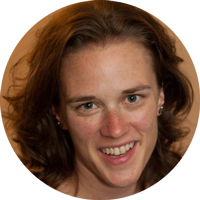
Who Inspires Rachael:
“I think I am most inspired by the students I meet. The students in my Medical Microbiology course are juggling work, life, family, and still have energy to pour effort into their assignments. The way that they show up for and challenge themselves pushes me to give them the best learning environment possible.”
For over 15 years, she has been teaching science to students from ages 7–70 and brings a “learning should be fun” approach to all of her educational experiences.
She has taught microbiology, immunology, general biology, cell biology, biochemistry, and molecular genetics lecture and laboratory courses at many colleges and universities in the Bay Area.
Rachael is also an online curriculum innovator. She was also the first to use video commenting to engage students and shared her best practices on this with other instructors. Her Medical Microbiology course enrolled 275 students in its first year, and now enrolls between 300–340 students per year.
In addition, she has also worked as a program director and coordinator at Bay Area nonprofit science educational programs supporting elementary school students and high school teachers.
You can learn more about Dr. Webster at a previous profile when she was named an Extension Honored Instructor! Her comments here have been adapted from this original article.
Sydney Chaney-Thomas
Sydney is the founder of Ocean SF, a sustainable sailing apparel company, and she is also a writer and a teacher. She has three published books and continues to share her thoughts on her website. She teaches Leadership and Management courses at UC Berkeley.
She writes for Medium and wrote a column for 24/680 News. She comes from a family of teachers and shares the close ties she had with a relative. “My great aunt earned a master's degree in education and worked with children with polio. My mother and I lived with her while my father served in the Vietnam war.”
Despite that inspiration, however, Sydney had no plans to teach. She plunged into a varied career working in politics and then working in the tech field in project management and marketing. “I was asked to teach a marketing class based on my many years in the technology field,” she relates, “and I enjoyed it. Then I was asked to teach Effective Leadership and Management which has been a very rich and wonderful experience for me.”
There are several facets to her teaching philosophy. The first has to do with her initial reticence about sharing personal experiences during her long career. “At first I was reluctant to talk too much about myself in class,” she admits, “and I would focus on leadership concepts, but then my students would tell me that my stories were the best part of the class. So, now I will share more.”
While her students love the stories forged from her experiences, Sydney wants her students to take the initiative and share their own experiences.
“I think people learn from each other,” she states. “I am big on group discussions, break-out rooms and giving people ways to think and express themselves while they learn. I like to draw people out and hear their point of view. In my Effective Leadership and Management class for working adults my students are from around the world, literally they Zoom into the class from places like Malaysia, Israel and Brazil. They have so much to teach each other.”
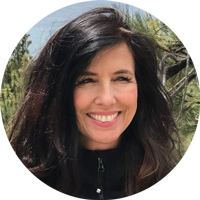
Who Inspires Sydney:
“I find inspiration everywhere. I am inspired by all of the young people like Amanda Gorman who are driving change in our culture right now. My daughters inspire me greatly and give me great ideas that contribute to my teaching. I learned so much from Paris (22) and Siena (20) especially while they did their college courses at home on Zoom during lockdown. I think it's a privilege to have a front-row seat to making history. I am very hopeful for the future.”
When asked what are the rewards she gets from teaching, Sydney has a ready answer. “I love spreading ideas and developing people into exceptional leaders,” she shares. “Knowing that I have made someone a more empathetic leader and have been able to drive change in organizations through my students is amazingly gratifying. I can't think of a better way to spend my time.”
Seema Saharan
Seema Saharan, M.Phil. Mathematics (operations research) and completing Ph.D. (statistics with a focus on data science algorithms), is an instructor at UC Berkeley Extension and Cal State University, East Bay. She has taught statistics, biostatistics , data science with python, machine learning with R, big data, operations research and mathematics. She has authored numerous research papers published in prominent journals such as Springer Nature and IEEE.
Seema has worked as a software engineer on commercial and scientific projects using programming languages such as Matlab, R, python, C and Java. In this data-driven world, she is keenly interested in data science, biostatistics, big data and AI-driven machine-learning techniques.
Seema works as a volunteer statistician and data scientist at the cardiovascular lab at UCSF. One of her novel research projects, conducted with a team of renowned UCSF doctors, was published in the April 2021 edition of Springer Nature.
She uses that experience to bring concrete meaning to her lectures.
“I integrate my knowledge and research experiences within my pedagogical deliverables in a tangible manner,” she shares, “showcasing real-life examples related to biostatistics and data science. I help students gain a broader perspective of the relevant domain by guiding them through real-life research projects.”
Teaching has been a part of Seema’s life, and it’s no surprise that she is paying forward given the help that she received from past mentors. “I was inspired by my school and university teachers to work in the academic domain,” Seema says. “They were role models who made me realize the pivotal role that a teacher plays in a person’s life. They empowered me with the vision of how to impact a student’s career in a meaningful way, helping them charter their path to success.”
Who inspires Seema: Mahatma Gandhi, Martin Luther King Jr., Cesar Chavez, Mother Teresa,
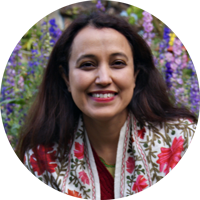
Reverend Bayes, Issac Newton and Albert Einstein.
“Teaching is my passion,” Seema enthuses. When she talks about her experiences in the classroom and online, you can tell that teaching is foundational to her being.
“Teaching is a medium that can enable students to pursue their career goals and make a positive change in the world. It gives me great pleasure to be a significant contributor in the fulfillment of this worthy cause.
“I espouse and imbibe the highest academic standards, based on research goals, equity and public service. I unequivocally support diversity that is an integral part of society to create a more inclusive and progressive environment. I teach with the objective of educating individuals who face challenging life situations, with focus and attention to detail that direct them to come up with innovative and context-based solutions.”
Just as Seema relishes the guidance she received from her past teachers, she is also grateful for the support that she gets from her students.
“I feel rewarded when my students inform me that they secured a spot in prestigious medical schools or graduate schools, or have secured a job of their interest,” she shares. “I also feel appreciated when students tell me that my influence was a very positive, meaningful one and when they acknowledge all my hard work toward making my teaching engaging, informative and interesting for them.”
Julie Downing
Julie Downing is an award-winning children’s book author and illustrator. She has written and illustrated more than 45 picture books, and has worked with major publishers including Harper Collins, Simon and Schuster, Scholastic Press and Houghton Mifflin. She has won many awards for her work, including a Parent's Choice Award, the New York Public Library Best Books Award and School Library Journal’s Best Books Award.
She earned a B.F.A. in illustration from the Rhode Island School of Design, (RISD) and teaches classes and leads illustration workshops both locally and internationally. She has led illustration workshops in the Middle East, Grenada, and Indonesia and trained hundreds of writers and illustrators. She is a member of the Society of Children’s Book Writers and Illustrators (SCBWI) and often speaks and reviews portfolios.
“I have been lucky to work with some amazing editors and art directors in publishing,” Julie shares. “The best people never tell me what to do but help me see a path forward.
And that experience in her illustration career is something she is careful to bring to her classroom. “I try to bring the same style of teaching to students,” she says. “There is not a right answer, when it comes to children’s books. There are standards, and things to consider, but no rules.
“Ultimately, the author/illustrator has to determine what is best for the book, so I want to give students the tools to find their answers.”
Despite all of the rigors and rewards that her career has brought to her life, it didn’t take Julie long to embrace teaching the next generation of children’s book illustrators. “I have many years of experience in publishing,” she admits, “but each student brings something fresh to the class and I really enjoy all the different perspectives.”
What inspires Julie: “Trying new things. I love the field of teaching because I always feel
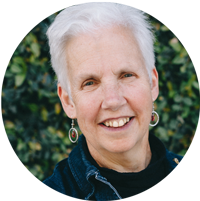
there is something new to learn, a new way to introduce a topic and a new problem to solve. Teaching is hard work, but it is never boring.”
“Respect,” is the word that Julie instantly adds when asked about her teaching philosophy. “I respect my students and admire their drive to put themselves out there. It can be scary to dive into something new and I am impressed with people who pursue their dreams.”
Of course, there are benefits for Julie, too. “I meet so many wonderful people,” she enthuses, “from all different parts of the world and all different backgrounds. I learn as much as the students learn.”
Enroll in courses at UC Berkeley Extension. And if you happen to meet one of these talented instructors, congratulate them for us!

